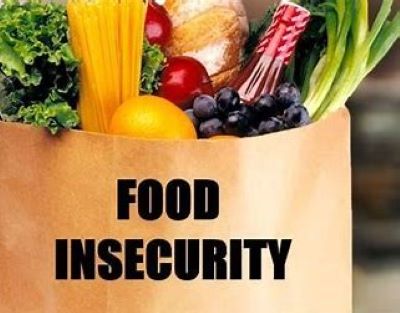According to ASHENEWS, the World Bank has identified Sokoto and six other states in the Northwest and Northeast regions of Nigeria as potential areas that may experience food crisis. The reason behind this is the high level of insecurity and armed conflicts that have led to a decrease in the standard of living across these regions.
ASHENEWS had reported that communities in Sokoto were lamenting their inability to access farmlands due to fear of attack and kidnappings. The activities of bandits have, over the years, stalled farming activities in the communities, especially in the eastern part of the state.
In the report, which is coming amidst a plan by the Sokoto state government to cultivate 323,000 hectares of farmland for wheat, rice, maize, and cassava during the 2024 dry season farming, the World Bank predicted that Borno, Adamawa, Kaduna, Katsina, Yobe, Sokoto, and Zamfara states would be affected.
ALSO READ: Food prices: Tinubu directs distribution of 102,000mt of grains
The bank, in its latest Food Security report, also stated that most areas in West and Central Africa would remain minimally food insecure until May 2024.
“It is projected that most areas in West and Central Africa will remain minimally food insecure until May 2024, with some being categorized as Stressed IPC 2. Nigeria (far north of Adamawa, Borno, Kaduna, Katsina, Sokoto, Yobe, Zamfara states) will be at crisis food security levels, mostly because of persistent insecurity and armed conflict and deteriorating livelihoods.”
However, food inflation has been a reoccurring issue faced by several governments across the globe, with experts viewing it as a key factor that contributes to the nation’s situation.
Nigeria’s inflation has been on the rise for 11 consecutive months, reaching a new high in December 2023, according to the National Bureau of Statistics (NBS).
Nigerians in different nooks and crannies have decried the economic hardship they are facing as a result of food inflation, naira depreciation, and rising insecurity across parts of the country, and called on the federal government to take necessary actions to avoid an uncontrollable frenzy situation.
So far, protesters in Kano, Niger, Lokoja, and Lagos states took to the streets early this week to register their displeasure over the high cost of food items and other essential commodities in the country.
One of the protesters in Kano, Usman Bello of Rijiyar Lemu said, “The hard economic situation has caused untold hardship to masses across the state. We have been pushed to the wall, hence the need for us to come out despite the harmattan season and express our concern.”
Many Islamic scholars and organizations, including the Jama’atu Nasarul Islam, have called on the federal government to urgently intervene in the difficulties being faced by Nigerians.
Also speaking with newsmen in Abuja, the president of the Nigerian Union of Pensioners, Godwin Abumasi said the union had lost about 1,500 members in recent times due to economic hardship and the high cost of living in the country.
Meanwhile, President Bola Tinubu has directed the Ministry of Agriculture and Food Security to release about 42,000 metric tonnes of grains including maize, millet, and garri, and the Rice Millers Association of Nigeria has also committed to immediately release over 60,000 metric tonnes of rice to the public.
This was disclosed by Minister of Information and Orientation, Muhammad Idris after the meeting of the presidential committee on the emergency food intervention in Abuja.
He said that these were immediate measures taken by the federal government to reduce the hardship faced by Nigerians who are meant to bear the brand of the prices of food in the market.
Idris also said that the Ministry of Agriculture will further invest massively in the farming process to boost production and ensure the country’s food potentials are fully exploited.
Whether these measures will avert the country’s high cost of living remain to be seen.


